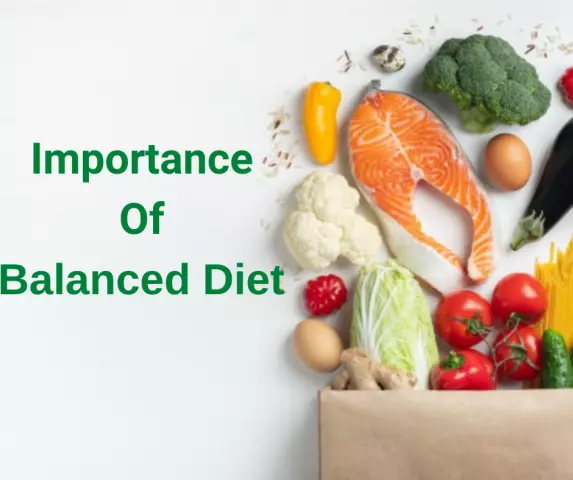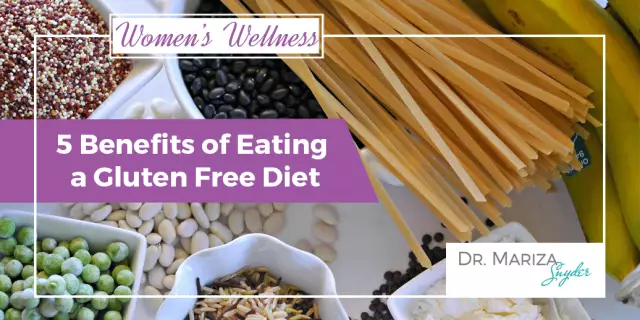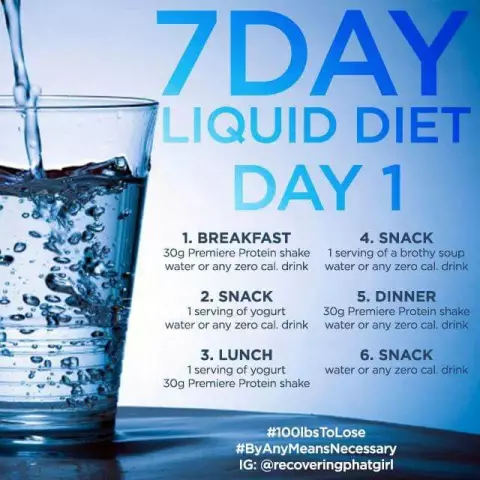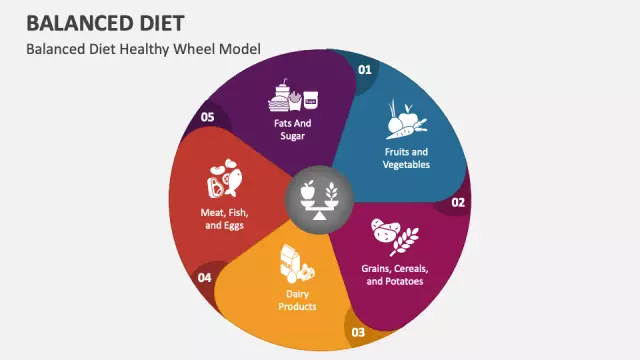- Author Rachel Wainwright wainwright@abchealthonline.com.
- Public 2023-12-15 07:39.
- Last modified 2025-11-02 20:14.
Balanced diet

A balanced diet is a daily diet that fully satisfies the daily energy requirement of the body, as well as maintains an optimal balance of vitamins and microelements. A balanced diet ensures the normal development, growth and vital functions of the body, as well as contributes to the prevention of diseases and overall health promotion.
Balanced diet: basic principles of a healthy diet
A balanced diet is often understood as a diet that is free of unhealthy foods. This opinion is partly wrong. After all, the exclusion of harmful products from the diet does not yet ensure its usefulness. The main principle of a balanced diet is to maintain an optimal level of vitamins and microelements, many of which are not synthesized in the body, and the food consumed is the main source of their supply.
A balanced diet is also often compared to diets. However, not every balanced diet promotes weight loss.
The basic principles of a balanced diet are:
- Energy adequacy - each person's need for energy is different. A healthy body needs 1300 to 2000 calories per day for the body to function properly. Exceeding the threshold of 2000 calories daily, the body begins to accumulate excess weight, while the lack of calories will transfer the body to nutrition from its own fat reserves, which will lead to weight loss;
- The correct ratio of proteins, fats and carbohydrates, which is determined by the formula 1: 1: 4;
- Optimal balance of vitamins and minerals. It should also be noted that both a deficiency of vitamins (hypovitaminosis) and their excess (excessive accumulation, hypervitaminosis) are harmful;
- The correct division of the calorie content of the daily diet by meals, among which 25% of calories are for breakfast, 50% for lunch, and 25% for dinner.
To comply with these principles, it is enough to know:
- Calorie content of consumed foods;
- The mass of products for each meal;
- The content of vitamins and minerals in consumed foods.
A balanced diet should correspond to a person's health, condition, gender, age, lifestyle.
Balanced diet for weight loss: principles of diet
Losing weight through a balanced diet is a longer process, but less harmful and more effective for the body. Unlike traditional diets, a balanced diet does not provide significant restrictions. On the contrary, adhering to a balanced diet, a person receives all the necessary vitamins and minerals. A balanced diet for weight loss involves reducing the calorie content of the diet. So, to maintain a normal state, the body needs about 1500 calories, while for weight loss, the upper limit of calories consumed per day should not exceed 1300.
A diet that excludes certain foods from the diet can cause significant harm to the body, lead to the failure of some of its systems, vitamin deficiency, while a low-calorie balanced diet activates the body's metabolism, burning internal fat stores.
A balanced diet for losing weight, in contrast to a diet, does not exclude the consumption of flour products and cereals (a source of carbohydrates and fiber), dairy products (a source of protein, calcium, vitamin B12, riboflavin), protein products (a source of protein, iron, zinc, vitamin B12), vegetables and legumes (a source of vegetable fiber, folic acid, vitamins A and C), fruits (a source of fiber and vitamin C).
However, a balanced diet, as well as a diet, provides for some restrictions on the amount of food consumed, the way they are cooked. So, in order to obtain the maximum amount of nutrients from consumed vegetables and fruits, they are recommended to be consumed raw, boiled or steamed. Any type of meat is also recommended to be eaten boiled or baked in the oven without fat.

Proper nutrition for weight loss also requires a review of fluid intake. For healthy functioning, the body needs 1.5 liters of water per day. It is also recommended to exclude packaged fruit juices, sweet, carbonated drinks.
When following a balanced diet for weight loss, be extremely careful with alcohol, as alcohol awakens a strong appetite.
It should also be remembered that after achieving the desired results, the calorie content of the diet should be increased gradually, which will help avoid weight gain in the future.
Balanced diet: menu and its variations
To obtain all the vitamins and microelements necessary for the body, the most complete coverage of products from each group (flour products and cereals, dairy products, protein products, vegetables and legumes, fruits) is necessary, which determines the fragmentation and frequency of meals.
A balanced diet, the menu of which contains sufficient energy and vitamin potential, offers a weekly cycle that covers all the necessary food groups, contains all the necessary vitamins and elements, but does not exceed the energy value.
From flour products and cereals, it is necessary to give preference to whole-grain breads, pasta from durum wheat, brown brown rice. Among dairy products, preference should be given to low-fat or low-fat products. From meat products, more preference should be given to red lean meat, white poultry meat, and lean fish. Vegetables and legumes should make up 50% of the diet. It is necessary to give preference to fresh products, avoid canned and frozen foods. Fruit can be consumed in unlimited quantities and follow the same principle: give preference to fresh, seasonal fruit. Eliminate canned, frozen fruits. Dried fruit is also not a complete alternative to fresh fruit.
Balanced nutrition for a week
A balanced diet for a week is a complete diet. The proposed balanced diet, the menu of which covers all the necessary elements, is of a recommendation nature:
- Cereals, bread - up to 6 servings of food per week. Moreover, giving preference to ready-made breakfast cereals, the number of servings should be reduced to 3 per week;
- 6 servings of low fat dairy or 3 servings of low fat;
- 3 servings of lean red meat and 2 servings of fish or white meat;
- Up to 5 servings of vegetables and legumes per day;
- Unlimited fruit, however, at least 2 servings per day.
Observance of such a balanced diet for a week will significantly improve health, activate metabolism, and relieve the feeling of heaviness in the stomach. A balanced diet is the basis for a healthy life of the body and prevention of common diseases.
Found a mistake in the text? Select it and press Ctrl + Enter.






